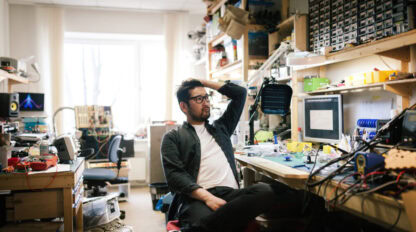Is a 12-Step Model Right for Everyone?
Recovery is a dynamic and changing process that requires a pragmatic approach. Successful recovery depends on a variety of factors including the motivation of the person struggling with the disorder, their family, the specific diagnosis and treatment history, access to resources, and personal philosophies and interests.
There are many options, twists, and turns when choosing a recovery model. If you are a person seeking a specific program, primarily for addiction, and it is diagnostically appropriate, then the proven and highly accessible 12-step model is a great option. The model offers a tried and true path that involves individual mentoring in tandem with community-based, action oriented practices that has seen effective, lasting, and transformative results. If you require a recovery plan that accounts for more than just addiction issues and have the desire, access, and time for a variety of programming, then a pragmatic and diversified alternative approach is worth consideration.
As an employee for Intent Clinical (Intent Clinical), one of the first questions I ask a potential client is whether they have had any exposure to a 12-step model. Understanding their experiences and perceptions related to this model helps me better collaborate with them to develop a sustainable recovery plan.
While some clients are willing to incorporate a 12-step model into their recovery, others are often in need of alternatives to stand alone and compliment the many facets that need addressing in their behavioral health picture. When a client is hesitant, undecided, or inappropriate for the context and practice of a 12-step model, I suggest alternatives to help them build their life in recovery.
At Intent Clinical, I work with clients, families, and treatment teams to develop and accomplish goals related to their recovery history and personal interests, thus providing a meaningful and safe blueprint according to their diagnosis and individual challenges.
By reinvigorating pre-existing positive ideas, behaviors, and social connections, and simultaneously exposing and introducing new goals, different professionals, appropriate methodology, safe environments, and supportive communities into their “world,” healthy change usually occurs. As an employee and a person in recovery myself, I do my best through personal experience, role modeling, care coordination, and coaching to help transfer specific concepts into action so that each person can progress towards healthy and meaningful change in their own surroundings and relationships.
Recovery, especially early on, requires, support, commitment, dedication, and a willingness for healthy and sustainable change. No plan is perfect, but through participation, accountability, acceptance, curiosity, and practicing a life of passion, purpose and meaning can be realized.
Read more about Intent Clinical’s Consultation Services.

